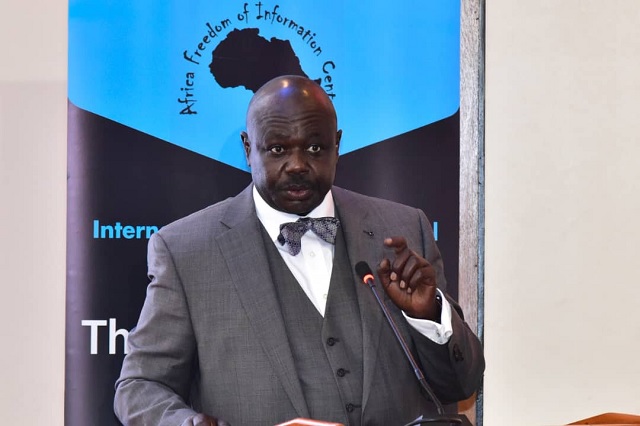
Kampala, Uganda | THE INDEPENDENT | Speaker of Parliament Jacob Oulanyah says there is need to ensure that all Ugandans understand the value of the right to access to information.
He said while Uganda and other countries have enacted laws guaranteeing the right to access to information, such laws seem to benefit a small section of the society especially the elite.
Jacob Oulanyah was the chief guest as Uganda joined the rest of the world to mark the International Day for Universal Access to Information held annually on September 28.
The event in Uganda was hosted by Africa Freedom of Information Center (AFIC) and Twaweza East Africa’s Uganda office.
The theme of the 2021 International Day for universal access to information highlighted the role of access to information laws and their implementation to build back strong institutions for the public good and sustainable development, as well as to strengthen the right to information and international cooperation in the field of implementing this human right.
While highlighting the need for the right to access to information, Oulanyah said the civil society has not done much to ensure that all Ugandans are educated.
He said there is need for an evaluation to find out how the Access to Information Act has impacted on rural communities, who make up majority of the population.
“The Access to Information Act was enacted in 2005 and the question is, since its enactment, of what benefit has it been to the ordinary person,” he said.
Jacob Oulanyah is of the view that the law which has been in place for over ten years has benefited those on social media and generally the elite.
He made reference to the recent addressees by President Museveni on the Covid-19 pandemic where he said that majority of people were only able to access such information through the broadcast media.
“They say that information is a public good, and it is true, but to whom. Is it just a high sounding rhetoric or does it come to action to help people who need this information to change their situation and status. If we can’t change their lives then we have no purpose saying what we are saying so eloquently in these big meetings,” Oulanyah said.
But before Oulanyah’s speech, Africa Freedom of Information Center (AFIC) Executive Director, Gilbert Sendugwa had highlighted examples in Uganda, Kenya, Tanzania and Malawi demonstrating how citizen’s access to information unearthed rot in government contracts.
Sendugwa said when citizens access information, corruption is fought in the different offices. “We have learnt from our work in Uganda that when government agencies disclose information, they receive great feedback from civil society and other data users which helps these agencies to perform better,” he said.
While the government says it has enabled citizens to access information through barazas and regular press conferences, civil society groups want the citizens to access information and records on contracts, tenders and details in budgets.
The Head of the African Governance Architecture (AGA) Secretariat Salah Hammad at the African Union (AU) says that governments should advance and protect the rights to access to information.
Joyce Ssebugwawo the Minister of ICT in charge of Information says that information helps in delivery of government services. She said the government established information access centers like the government citizens interaction centre as part of the efforts to ensure that the government officers give out timely information to citizens if requested.
While Uganda has been hailed for being among the first African countries to enact the Access to Information law, several scholars and studies have found that the law has not been implemented. Government officers at the Central and local governments continue to hide under laws of secrecy to deny citizens access to information and public records.
Parliament has on the other hand been faulted for failure to demand that the Minister of Information and National Guidance provides an annual update on the status of Access to Information Act.
*****
URN
 The Independent Uganda: You get the Truth we Pay the Price
The Independent Uganda: You get the Truth we Pay the Price


